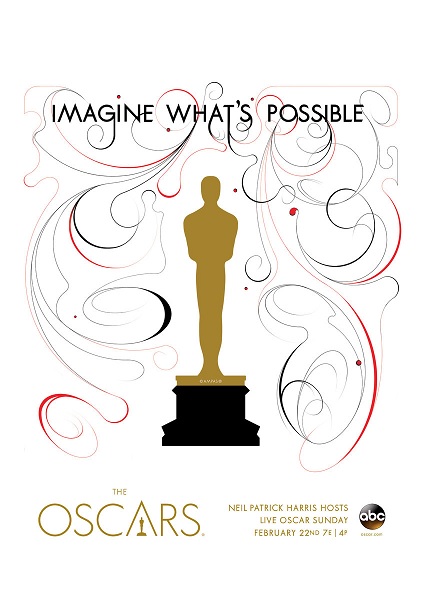I know, I know. Of all the major American entertainment award shows–the Grammys, the Tonys, the Emmys (sounds like a rosy-cheeked American family, eh?)–the Oscars are by far the easiest to ridicule. The broadcasts are much too long, the interviews much too self-adulating, and the winners too predictable. There’s only so much Meryl Streep one can experience in a calendar year after all.
Nevertheless, despite the jokes and the eye-rolls and the eagerness many of us have to let social media know we can’t possibly be interested in the Oscars, we still care. One reason I know we still do is because when the American public truly respects and admires a particular movie–like, say, American Sniper–we say something like, “This should win an award,” or, “If this doesn’t win something, I’m through with Hollywood!” No matter how obnoxious we may say the critics or celebrities are, we still care about what they say and what they win (or don’t win).
I submit that this chagrin is unnecessary. Everything I said about the Oscars in the first paragraph, especially about its broadcast, is true. But the reason we still care about the Oscars is simple: they matter. Leave aside for one moment the self-congratulatory materialist exhibitionism of red carpet galas. What really makes the Oscars matter is the need every person has to join excellence and praise. When something truly admirable comes across our path, we are not satisfied merely to enjoy it. We need to praise it, to publicly extol its qualities to others in a way that invites them to join us and share our excitement over finding something valuable.
C.S. Lewis observed this human tendency several years ago in a 1958 book called Reflections on the Psalms. Lewis writes that “[W]e delight to praise what we enjoy because the praise not merely expresses but completes the enjoyment; it is its appointed consummation.” Lewis was applying this to God and His command to be worshipped by people. Far from being a co-dependent ego maniac, God, in commanding to be praised, was ordaining the fulfillment of His worshipper’s joy. It’s true that sometimes we praise things simply because others are doing so or because we feel compelled out of some other interest to do so. But in moments of genuineness and honesty, when faced with something really praiseworthy, our instinct to heap recognition and adulation on it is part of the pleasure we take in it.
Of course, this isn’t just true of the Oscars. Our human need to praise the praiseworthy manifests itself in all sorts of ways, from the Grammys to graduations. But the Oscars have a unique place in our cultural consciousness for a few reasons.
First, the Oscars honor film, and movies are–regardless of the oscillations of the movie industry–American culture’s preferred mode of that most ancient ritual: storytelling. Storytelling is, as Mike Cosper has pointed out in his new book, at the very heart of what it means to be a human being created in the image of God. If storytelling so close to the center of humanity, then it’s logical to think that events and institutions that honor exceptional stories and exceptional ways of telling them should be important to us as a culture. Movies matter to us, and even in our most populist, anti-film critic moods, we want the ones we honor to be honored by others too.
Secondly, the Oscars are historic. The first Academy Awards were held in 1929 and all of its winners were silent films, some of which do not even exist anymore. For almost 90 years the Academy has been not just one of many but the authoritative body on American motion pictures (the Hollywood Foreign Press Association, which awards the Golden Globe, is made up primarily of international journalists and critics). Though the shibboleth for the millennial generation is often the word new, there is much to value about an institution that endures for the better part of a century. The Academy’s steady presence lends a gravity to its awards and a recognition that to be named a winner or even nominee is to truly enter American cinematic history.
And lastly, let’s be honest: The Oscars are a lot of fun. I vividly remember the night in 2004 that The Return of the King swept all 11 of its nominations, tying Ben-Hur and Titanic for the most Oscars ever. Even if you weren’t cheering for the film, the sight of a grizzly Peter Jackson and his motley band of Tolkien nerds receiving trophy after trophy was a memorable moment. There have been many, many others, like Shakespeare In Love’s shock win over Saving Private Ryan in 1998 or the night when Denzel Washington and Halle Berry became the first ever African-American actor and actress to win their respective leading role categories in the same year. Yes, the Oscars can be unbearably pretentious, but they can also be filled with humor, surprises, and not a small amount of satisfaction.
So let’s fill out our prediction sheet, tweet our reprimands towards the rich and famous, and enjoy the Oscars this year. We could all benefit from an hour or two celebrating stories and movies that matter to us and cheering them on to get the prize we know they deserve.












